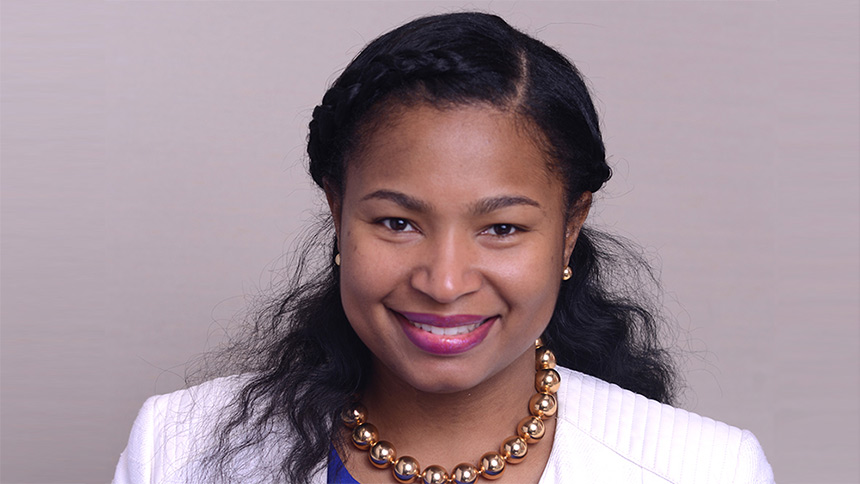It’s an age-old conundrum: Whether you were unemployed for a while or took a leave of absence, how do you deal with date lapses on your resume?
Traditionally, there are two schools of thought when addressing a period of unemployment on your resume: Ignore the gap and deal with it later when you actually speak to a hiring manager, or be open about it early on so you don’t have to choose your words carefully during the interview—assuming you get that far.
Also on Mediabistro


We asked several human resources and career experts to settle the issue for us (and you) once and for all.
Be Truthful
“Be proactive…address it upfront,” suggests Heather Huhman, a former hiring manager and founder of Come Recommended, based in Washington D.C. “In a competitive job market, employers are pickier about who they interview. Having obvious gaps of employment makes many hiring managers wary about you—whether it’s a fair assumption about your character or not.”
Amy Phillip, a Brooklyn-based career coach and resume writer who formerly worked as a human resources director, agrees that you have to be honest about gaps, no matter how short they were.
“If you don’t address gaps, you won’t get an interview,” she warns. “The more transparent you can be the better.”
She says that if you don’t explain professional time off in your resume, a hiring manager may infer a number of different things about you—and that could cost you the interview.
“You don’t want to leave anything open to interpretation,” she adds. This way, any questions about why you took the time off (or your inaction in addressing it) are out of the hiring manager’s mind.
Keep Dates Simple
One way people try to take the glare off resume gaps is to list only their years of employment. So, if you were out of work or between projects during the summer but working by October, it still looks as though you were gainfully employed.
But should you disclose every short-term break or times you were waiting on assignments? It depends.
Philip never references months on a resume, and Dawn Bugni, Master Resume Writer, says she only lists months when it helps a client. For example, if you were laid off in June, you may want to list that your sabbatical began in June. “If the search is protracted and the month becomes a detriment, switch to years only,” she notes.
Reference It Simply
So, you’re going to tell all—well, maybe not all—about a gap on your resume. Where do you include this note?
Phillip suggests referencing time off on the resume exactly where the gap is chronologically in your listing, or you can place the note at the end of your professional experience.
If you have more than two periods of unemployment to answer for, put the reference at the bottom and state both dates in one statement.
As far as wording goes, the less detail you share, the better. The last thing a recruiter or hiring manager wants to see is intimate details of why you took time off. (Cared for your grandma during her time in a hospice center? Got canned because you spent too much time on Facebook at work? Too much information!)
Phillip says including fluff or filler on a resume is never a good idea, no matter how short the gap may have been. Instead, include a one- or two-line note saying that you took a “professional sabbatical” and then include the dates of the gap.
“Don’t use the words ‘leave of absence,'” cautions Phillip. Why? Because in the human resources world, that means you took a medical or family-related leave, and that’s not looked upon very highly. By using the term “professional sabbatical,” it simply implies time off from your professional life without getting too personal.
“Job seekers need to focus on the positive done and skills gained while between positions, not on explaining why they were between positions,” Bugni adds.
Some may contend that being broad and not giving a reason is still omitting the truth, but Phillip says by simply referencing your sabbatical, you can still explain it in an interview, if asked. (And you won’t wind up having to address the elephant in the room.)
Fill in the Gaps
Most media professionals who were left out of work due to mass layoffs didn’t watch reruns of Grey’s Anatomy all day, at least not for the whole time they were unemployed.
Instead, many kept up by attending networking events, interning or volunteering in their industry, taking professional development courses or going back to school.
Jobs aren’t always easy to come by, and it’s not unheard of for those who lost their jobs to have been unemployed for a year or two. By including these activities with your professional experience, you aren’t ignoring the gap—you’re showing that you stayed busy during it.
A recruiter will know that although you weren’t “working,” you didn’t spend your days waiting for the phone to ring, either. “Put it under ‘Professional Experience’,” says Phillip. “I would not separate that out [to a separate section in the resume].”
Phillip recently worked with a young architect who took five years off to have children but wanted to return to her profession. She denoted her time as a new mom in her resume and wound up getting plenty of calls. Of course, she had to take a step down to get back into the field, but she got a job—and her gap did not hold her back.
“[The gap] wasn’t even a question during the interview, because it was already addressed in the resume,” Phillip says.
Rethink Your Cover Letter
Phillip says that many people may omit professional breaks from their resume and include it in the cover letter, since that tells more of a story, but she says that job seekers can waste time by only noting it in the cover letter. Why? Because most cover letters don’t even get read.
She admits that during her time as a hiring manager she only read a cover letter if the applicant was from out of town, so she would know what type of relocation package, if any, he or she wanted.
Other than that, the cover letter was futile. Obviously, that’s not the viewpoint of all hiring managers, and many companies require applicants to submit cover letters. However, Phillip suggests not using that as your only venue to explain holes.
Bugni agrees. “There is no guarantee a cover letter will be read in the order intended, if at all,” she says. “I do not risk sharing anything important only in the cover letter. I do it on the resume and might mention it in the cover letter too…although you don’t want a cover letter to become a regurgitation of the resume, either.”
In some cases, you may not even have to discuss your sabbatical during an interview. Some employers are simply impressed that you were honest about the gap at all.
Considering the bad rap that lapses on resumes get, it’s understandable why everyone is tight-lipped, so to say.
But in the course of a media career, a professional pause is bound to happen, and the best way to get past it is to be open and honest so you can focus on landing your next job.
“[Resume writing] is sales and marketing. Do what it takes to present skills in the most positive light possible,” adds Bugni. “Put effort into selling the value you bring to an organization, not explaining why you were able, forced or chose to take some time away from the work world.”
If you’d like your resume to stand out even more, consider getting the help of a pro. Mediabistro’s Career Services offer everything from a quick resume edit to several sessions of career counseling to tackle your CV, networking skills, career transition and more.










